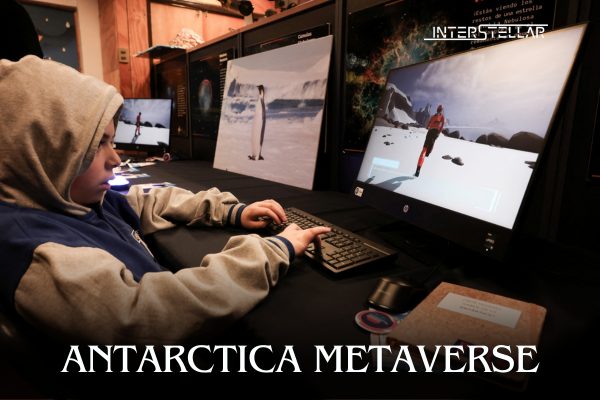“Antarctica Metaverse” Video Game Makes Antarctic Science Accessible
Exploring Antarctic Ecosystems Through Virtual Reality
Developed by the University of Chile’s video game laboratory, “Antarctica Metaverse” is an innovative video game that allows players to explore various ecosystems, conduct scientific diving, sample native species, complete scientific logs, and detect pollution. This engaging approach aims to safeguard the region’s biodiversity by raising awareness about environmental issues.
Victor Fajnzylber, the director of Antarctica Metaverse, explained that the game leverages video game languages and virtual reality to make Antarctic science accessible to a broader audience. The game features futuristic elements that project what pollution might look like in a decade and how climate change could impact life in Antarctica’s terrestrial and underwater ecosystems.
Encouraging Scientific Inquiry and Personal Reflection
Fajnzylber highlighted the game’s goal to encourage players to form their own hypotheses about the world they discover, fostering personal reflections on biodiversity and climate change. “Antarctica Metaverse” is set in 2035 and imagines a future where players can explore and think critically about the impact of pollution and climate change on the continent.
“We were able to create a language that allows a diversity of scientific experiences and a wonderful creative artistic process that combines disciplines such as audiovisual, sound, animation, engineering, and architecture,” Fajnzylber said. “All of this is combined in an intuitive, open video game, where players can explore freely and create their own hypotheses about what is happening on this continent during their visit.”
Collaboration with Scientists
Dr. Elie Poulin, director of the Instituto Milenio BASE (Millennium Base Institute), emphasized the collaboration with researchers to bring accurate scientific knowledge to the game. “The information on the species living in Antarctica, as well as scientific research, resulted from the collaboration with many researchers from the Millennium Institute base to bring that knowledge to the game. Knowing the species, its environment, and the dangers that particular species face due to climate change,” Poulin said.
Educational Impact
The game’s educational potential was highlighted by teacher Jose Abdala, who noted that “Antarctica Metaverse” can help players understand the dynamics of scientific research processes. “It demonstrates how research and exploration are carried out on environmental issues and helps us learn about an area that, unfortunately, not all Chileans have the chance to know,” Abdala stated.
The game is available for free download, making it accessible to a wide audience and providing an interactive platform for learning about the unique and fragile ecosystems of Antarctica.





